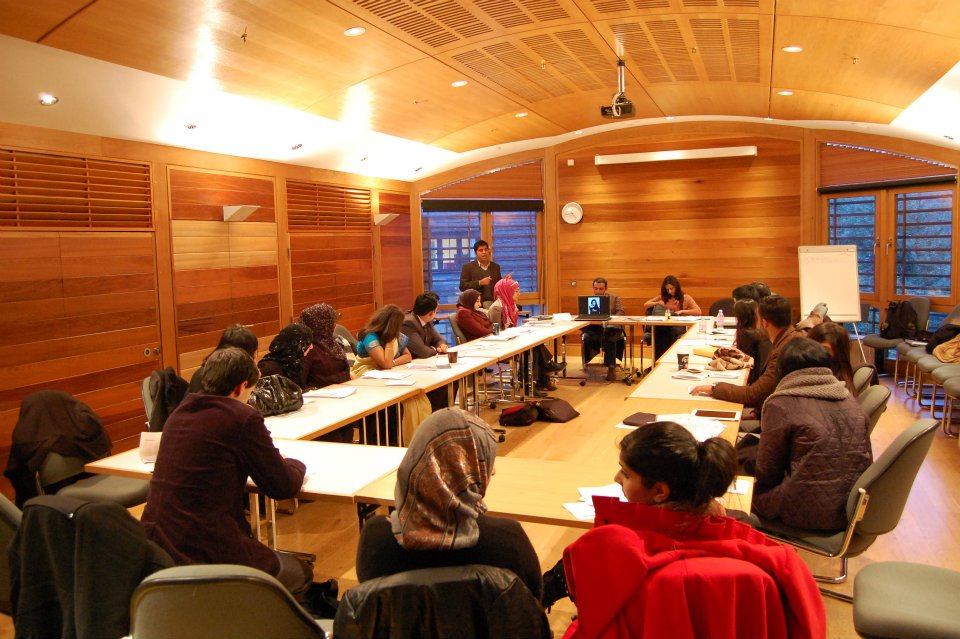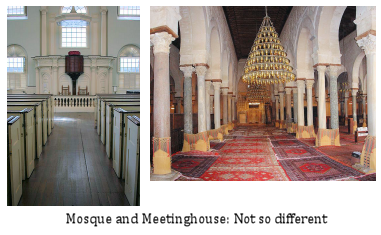
Honour and Solidarity: The 2012 Romanian Protests
On January 12, over 1,000 Romanian citizens came out on the streets of Bucharest to protest against the resignation of Raed Arafat, the Minister of Health. Mr. Arafat’s resignation was triggered by his discontent over proposed reforms to the emergency medical system under a new health law and also as a result of criticisms from Romanian President Traian Basescu, aired on national television. A Romanian citizen of Palestinian origins, Mr. Arafat is regarded by many as a national hero. In 1991, he created SMURD, a mobile emergency service which has thus far saved thousands of lives and is the most modern and advanced medical facility that the country possesses currently. Due to a lack of government investment and staff departures, the medical …

Pakistan’s future from the students’ perspective
As Ishtaiq Ahmed mentions in a recent blog post on the annual Pakistan Future Leaders’ Conference, held in Oxford earlier this month, Pakistani students in the UK have definitively shown that progressive thought is alive and well within the Pakistani community. For example, this student-driven event was unafraid to pick up sensitive issues such as the Balochistan separatist movement amply demonstrating the capacity of young Pakistanis to be fearless and independent in their thinking. Students vowed to work towards making Pakistan a progressive, truly democratic state where people of all creeds can enjoy the fruits of freedom and liberty. Dr. Ahmed, covered numerous topics in his piece; but I want to highlight a few areas in more detail. As mentioned above, …

The seeds of a green spring: young leaders meet in Oxford to debate Pakistan’s future
For three days (February 3-5) Oxford University was the venue for the Pakistan Future Leaders’ Conference (PFLC), attended by some 300 student-delegates hailing from around 50 universities and colleges in the United Kingdom. This major event was organised by Oxford University’s Pakistan Society, in collaboration with the Oxford Union, and the Pakistan societies of Cambridge University and the School of Oriental and African Studies. Such a large gathering of young Pakistanis in Oxford was reflective of an emerging ‘youth moment’ currently setting the course of politics in Pakistan. Cricketer-turned-politician Imran Khan, who is also an Oxonian, has already tapped into this phenomenon. His recent political rallies in Lahore and Karachi attracted exceptionally large crowds of younger people, forcing the country’s …
US Military Finances Research on Rape in DR Congo
Margot Wallstrom, the United Nation’s special representative on sexual violence in conflict, referred to the Democratic Republic of Congo (DRC) as ‘the rape capital of the world’. If my Google search was any indication (registering a disturbing 4,640,000 hits for the term), the sensationalist phrase stuck among members of the civil society and aid agencies in the Global North. The eastern DRC has alternately been described as ‘the worst place in the world for women’ by The Guardian and ‘hell’ by American feminist playwright Eve Ensler. US Secretary of State Hillary Rodham Clinton called rape in the DRC ‘evil in its bases form’ during a visit to the region in 2009. There is something to be said about the damaging …

Many Trails to Freedom: Islamic Democracy is not an Oxymoron
“I disapprove of what you say, but I will defend to the death your right to say it.” – Voltaire. Over Christmas I visited Boston and had the occasion to walk the famous freedom trail: 3 miles of sights commemorating American independence. As I walked this hallowed ground I pondered on those fighting for freedom today, in the streets of Cairo, Homs and Tunis. Having met some of these people, I wondered at the suspicion we direct at the Islamic parties now gaining power, as if we forgot our own history. American democracy was born of Puritan principles of self-government, but that did not prevent it from evolving into the (more or less) secular body it is today. Ignoring this …
What Obama didn’t say about Iraq
The Iraq war was not a success. It was a failure. A dismal failure, and Western governments should learn from their mistakes. Of course, nobody can deny the brutal crimes that Saddam Hussein was responsible for. The savage attacks against the Kurdish population in Northern Iraq, the invasion of Kuwait and the terrorising of innocent civilians in the town of Dujail after an assassination attempt serve as prime examples of the sadistic nature of the Iraqi dictator. The world is definitely safer without him, but this in no way outweighs what the world, and in particular the Iraqi people, have had to give up. Transparency International’s most recent Corruption Perception Index (measured in 2010) ranked Iraq as having 175th most …
Federalism in Nigeria: Contextualising Boko Haram and the Fuel Subsidy
When Boko Haram killed nearly 70 civilians over the Christmas holidays, many observers in the Western media were quick to chalk it up to wanton Islamic extremism. The attacks, it was concluded, reflected global jihadist activity. Emphasis was placed on the group’s links to al Qaeda. This narrative is shortsighted. For one, it ignores Christian retaliation just days later, including the bombing of a madrasa that injured seven. More broadly, it decontextualizes the violence. Nearly 500 Nigerians were killed in the northeast in 2011 due to sectarian conflict. Suicide attacks, car bombings, and assassinations-by-machete have been documented throughout the country, Africa’s most populous and the linchpin of Western engagement with the continent. Such killings are not new to Nigeria: religious strife has been a constant for decades, …
Will Tony Blair’s Africa Governance Initiative’s focus on large-scale economic investment lead to further underdevelopment in Africa?
Tony Blair’s establishment of the Africa Governance Initiative (AGI) has been lauded by reporters and bloggers as being indicative of a “new” way for the international community to engage with African countries to assist in poverty reduction and to move “beyond aid” by “attract[ing] sustainable investment” to the continent. While the tenets of Blair’s AGI are fairly clear — focusing on strengthening African leadership and good governance and boosting economic growth through sustainable development of infrastructure — a visit to the AGI website is less than clear on how the initiative will (or can) ensure the necessary good governance. The AGI model can be summarized as: Leadership (founded on skills, systems and structures) + prioritisation + planning + performance management …









